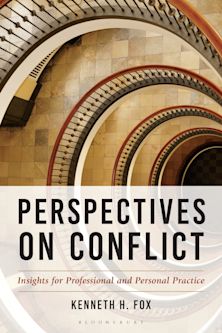- Home
- ACADEMIC
- Politics & International Relations
- Politics - Other
- Persecution or Toleration
Persecution or Toleration
An Explication of the Locke-Proast Quarrel, 1689-1704
Persecution or Toleration
An Explication of the Locke-Proast Quarrel, 1689-1704
You must sign in to add this item to your wishlist. Please sign in or create an account
Description
This book traces, in detail, the complex contours of the Locke-Proast debate over the question of toleration-revealing the radical case John Locke made on behalf of toleration. Arguing against the pro-persecution arguments of Jonas Proast, Locke developed a broadly humanistic case for toleration rooted in liberal notions of consent, human dependency, and skepticism. Locke's theory would extend to a wide range of religious believers and even atheists. However, at the same time, according to Locke, toleration requires an overcoming of the religious worldview, rather than an emergence out of theological assumptions, as many scholars argue. Ultimately, the success of toleration involves more than institutional reforms such as the separation of church and state or a mere modus vivendi among fighting faiths; it entails a shift in core religious beliefs and identities and a fundamental change in religious believers themselves. By undertaking a careful reading of the quarrel between Locke and Proast, this book furthers our understanding of the political alternatives of persecution, toleration, and pluralism.
Table of Contents
2 Preface
Chapter 3 1: Locke and His Interpreters
Chapter 4 2: Authority and Consent
Chapter 5 3: Force and Belief
Chapter 6 4: Faith and Knowledge
Chapter 7 5: Toleration or Pluralism
8 Postscript
9 Works Cited
10 About the Author
Product details
| Published | 20 Sep 2010 |
|---|---|
| Format | Ebook (Epub & Mobi) |
| Edition | 1st |
| Extent | 132 |
| ISBN | 9780739147245 |
| Imprint | Lexington Books |
| Publisher | Bloomsbury Publishing |
About the contributors
Reviews
-
Wolfson's slim volume manages to address a particular historical exchange about toleration between John Locke and Jonas Proast while linking their argument to contemporary concerns about pluralism, religious intolerance, and the viability of the liberal secular state. It is a well-written, accessible, enjoyable read about an underappreciated debate that is not quite as settled as it appears. Another virtue of the book is that Wolfson (Univ. of Chicago) takes Proast's arguments for religious persecution seriously because Locke took them seriously. Locke and Proast's arguments and counterarguments are extracted from their often-meandering prose and laid before the reader to be evaluated as more than merely time-bound historical artifacts. The author's particular interpretation of Locke is as ambitious as it is controversial. As Wolfson would have it, Locke did not merely pave the way for a secular, liberal state, but was himself a secular liberal whose theory of toleration makes room even for atheists, despite Locke's explicit words to the contrary. Wolfson would have done well to better defend his identification of Proast as representative of a monolithic Christianity in order for him to serve as foil for his modernistic Locke. Summing Up: Recommended.
Choice Reviews
-
In Persecution or Toleration: An Explication of the Locke-Proast Quarrel, 1689–1704, Adam Wolfson provides the Locke scholar with a thoughtful reading of the quarrel between John Locke and the Anglican divine Jonas Proast. Rather than provide a strict commentary on the seven works in question, Wolfson helpfully organizes his work around Locke’s three central arguments, bringing out the general thrust of each while using Proast’s objections to push and refine Locke’s positions.... Wolfson’s book is an insightful look into the mind of Jonas Proast; it illuminates what sorts of arguments must be made against men who have little to no taste for the Lockean project, or Western Enlightenment generally speaking.
Interpretation
-
By taking Jonas Proast's arguments as seriously as Locke did, Adam Wolfson illuminates both Locke's thought and the revolutionary implications of his turn toward toleration. Wolfson's book accomplishes what the best scholarship always does: it makes us think again about matters we too often take for granted.
William A. Galston, Senior Fellow, The Brookings Institution
-
A judicious and acute commentator, Wolfson is a deft guide to this important debate. He has produced a fascinating and insightful study that places Locke's thought in its historical context in a most illuminating way. This book provides readers not only with a deeper understanding of Locke's stance toward Christianity and his case for toleration, which had a direct influence on the thought of Thomas Jefferson and James Madison, but also with insight into the foundations and implications of liberal thought more generally. It is of interest to scholars of philosophy, theology, history, and political science.
Vickie Sullivan, Tufts University
-
Surprisingly little systematic study has been done of the totality of Locke's views on toleration. There has never been a book on Locke that analyzes all of his letters on toleration with the care and acumen of Persecution or Toleration?. This book is more comprehensive than anything in print and will make a major contribution to the literature on Locke, toleration, and liberalism. I expect this book will quickly become the leading book on Locke's theory of toleration and strongly recommend it to everyone who cares about liberalism.
Alan Levine, Learning Technology Consultant and blogger at cogdogblog.com



































